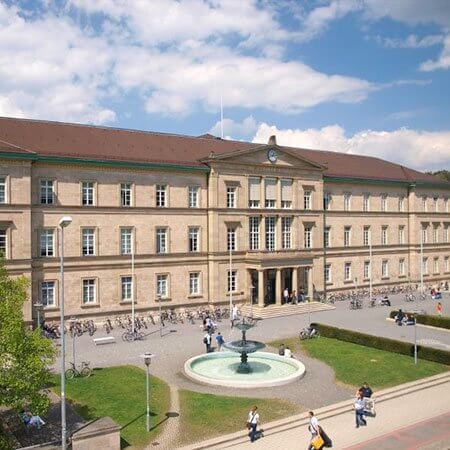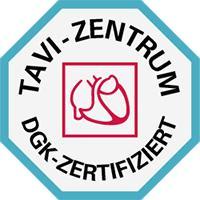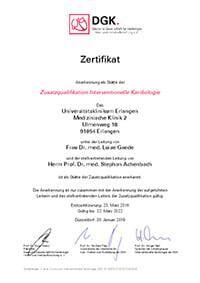Tricuspid insufficiency is a common acquired heart disease. It is usually not severe, progresses slowly, but the pathology is often accompanied by mitral regurgitation, which significantly worsens the prognosis of the disease. The treatment of tricuspid insufficiency abroad mostly involves the use of valve repair surgery. Occasionally, doctors resort to valve replacement surgery. Surgeons in developed countries perform surgical interventions not only through a large incision on the thorax, but also using an endovascular method: through the vessels in the leg.
Content
- Causes
- Should tricuspid valve disease be treated
- Symptoms
- Diagnostics
- Indications for surgery
- Tricuspid valve repair
- Minimally invasive tricuspid valve repair
- Tricuspid valve replacement
- Why is it worth undergoing treatment abroad
- Treatment in Europe at an affordable price
Causes
Tricuspid insufficiency can be:
- Organic (absolute, primary) – caused by valve lesion.
- Functional (relative, secondary) – caused by right ventricular enlargement.
Functional insufficiency is more common. The valve itself is not damaged, but due to the enlargement of the ventricle, the opening, which the tricuspid valve must close, also becomes enlarged. As a result, even unaffected leaflets cannot completely close the gap between the right atrium and the right ventricle. When the heart contracts, blood flows not only into the pulmonary artery, but also returns to the right atrium – this phenomenon is called regurgitation.
The most common cause of secondary insufficiency is mitral valve regurgitation. Mitral valve separates the left atrium from the left ventricle. Less commonly, this condition is caused by aortic valve disease, pulmonary hypertension, cardiomyopathy, ischemic heart disease affecting the arteries that supply the right ventricle.
Primary tricuspid valve regurgitation is much less common. It is associated with a direct lesion of the valve apparatus. Probable causes may include:
- Ebstein's anomaly.
- Rheumatism.
- Infective endocarditis.
- Tumors of the right atrium.
- Previous injuries and surgical interventions.
- Systemic connective tissue diseases.
Should tricuspid valve disease be treated
In most cases, tricuspid valve insufficiency develops secondarily due to mitral insufficiency. After surgery to repair this defect, tricuspid valve regurgitation resolves on its own.
For this reason, tricuspid valve disease was not treated in the 20th century. Doctors performed surgery to repair only the mitral valve. After its repair, the tricuspid valve regurgitation usually regressed. However, modern studies show that this does not always happen. Tricuspid regurgitation persists in about 25% of cases. It causes symptoms, progression of heart failure and severe arrhythmias.
Tricuspid valve insufficiency rarely causes symptoms. Both mild and moderate regurgitation is asymptomatic. However, long-term tricuspid valve regurgitation causes impairments in the function of the right ventricle. Patients develop right ventricular failure. As a result, the patients are in a weakened state at the time of surgical treatment of the disease. Thus, the risk of severe complications and the mortality rate of such patients increase. Therefore, the defect is corrected prior to the development of heart failure, if possible.
Symptoms
The condition usually does not manifest any symptoms. Tricuspid valve regurgitation is detected when the patient is examined for other acquired heart defects, most often mitral insufficiency.
In the case of isolated tricuspid valve disease, the defect progresses very slowly. Only half of the patients have signs of heart failure within 10 years.
Symptoms are associated with right ventricular enlargement. Thus, they manifest themselves only at the advanced stage of pathology. Here are the main complaints of patients:
- Poor exercise tolerance.
- Shortness of breath.
- Liver pain and throbbing.
- Visible pulsation of the jugular veins in the neck.
- Leg swelling.
Some patients have a cough, possibly hemoptysis. In the case of ascites (accumulation of fluid in the abdominal cavity), the abdominal circumference increases.
Diagnostics
The main method for diagnosing tricuspid valve diseases is echocardiography. It allows the doctors not only to visualize the valve apparatus and measure the area of the atrioventricular orifice, but also to assess the function of the right ventricle, to detect concomitant heart defects and diseases.
Tricuspid valve regurgitation can be mild, moderate, or severe. Mild regurgitation is not considered a pathology. It is often diagnosed even in young healthy people and usually does not progress. Such cases do not require any treatment, since minimal regurgitation does not lead to the right ventricular enlargement and does not increase the risk of heart failure.
Moderate and severe regurgitation is a reason to think about surgical treatment. Whether a patient needs surgery also depends on the condition of the right ventricle, the presence of symptoms, and the detection of other heart defects.
The prognosis of tricuspid valve disease is most influenced by the volume of the right ventricle and the pressure in the pulmonary artery. The right ventricle can be measured with echocardiography. The pressure in the pulmonary artery can only be determined approximately. If it is very different from systemic pressure, then cardiac catheterization is indicated for the diagnosis of pulmonary hypertension.
Computed and magnetic resonance imaging are less commonly used. These diagnostic tests are required in case of insufficient information content of ultrasound scanning, as well as in the case of a combination of tricuspid valve disease with congenital heart defects.
Indications for surgery
Surgery is usually performed for mitral or aortic valve defects. At the same time, doctors also treat the tricuspid valve disease, even if it has not yet progressed to a high degree of severity.
Isolated tricuspid valve disease is rare. If only the tricuspid valve is damaged, then the indications for its repair or replacement are as follows:
- Presence of symptoms.
- Severe tricuspid valve regurgitation caused by an increase in the diameter of the annulus fibrosus.
- Right ventricular enlargement and dysfunction of the right ventricle revealed on echocardiography, even in the absence of symptoms and mild tricuspid regurgitation.
Tricuspid valve repair
Tricuspid valve repair is the main surgery for correcting regurgitation. It provides more effective hemodynamics as compared to replacement surgery.
The surgical intervention is performed on an open heart. The doctor makes a large incision in the center of the sternum and uses a heart-lung machine. The methods of tricuspid valve repair depend on the mechanism of regurgitation. Cardiac surgeons can:
- Perform annuloplasty – implantation of a support ring.
- Enlarge the valve leaflets (most often the anterior leaflet).
- Implant artificial chords made of polytetrafluoroethylene.
The most common surgical interventions are those for reducing the annulus fibrosus, since tricuspid valve insufficiency is usually relative but not absolute. Nonetheless, the valve apparatus can sometimes be damaged due to rheumatism or other diseases. In such cases, surgeons resort to interventions on the valves and chords.
Some specialized cardiac surgery centers perform operations using less traumatic techniques: through an incision between the ribs, on the beating heart. They are technically more complex, but if successfully performed, they are safe, since the risk of atrioventricular blockade decreases and the time of oxygen deprivation of the heart muscle during surgery decreases.
Minimally invasive tricuspid valve repair
Patients with valve disease often suffer from concomitant diseases: cardiovascular, oncological, neurological, and other pathologies. Some patients have previously undergone heart surgery. There are many elderly patients among the patients of cardiac surgery clinics.
In debilitated patients, open surgery is impossible, since surgical treatment carries great health risks. In such cases, medical specialists resort to minimally invasive treatment. Doctors can repair the valve through the blood vessels. Such operations are less effective than open surgery, but they are safer. After them, the patients do not need to stay in the hospital for a long time and undergo long-term rehabilitation.
Transcatheter interventions are indicated for the following patients:
- Those who do not have other heart defects or they are subject to correction with the use of minimally invasive techniques.
- Those who have no other cardiovascular pathologies requiring open-heart surgery (for example, coronary heart disease).
- Those who cannot undergo standard open surgery due to the high surgical risk.
Many systems have been developed in the world for transcatheter elimination of regurgitation on the atrioventricular valves. Most of them are designed for the treatment of mitral valve insufficiency, but they are also used for the treatment of tricuspid valve disease. Here are the examples of such systems:
- MitraClip is a kind of a "clothespin" on the valve leaflets, which tightens them and reduces the valve area.
- Mitralign and 4-Tech are minimally invasive methods of reinforcing the annulus fibrosus, which imitate suture annuloplasty.
- Forma, TriClip and Edwards Pascal are used to increase the leaflet area.
- Trialign, TriCinch, Cardioband, Millipede IRIS are used to narrow the annulus fibrosus.
Some of these methods are already available for foreign patients. Others undergo clinical trials for tricuspid valve disease and will be approved for clinical use in the coming years.
Tricuspid valve replacement
If the valve is destroyed and cannot be repaired, it is replaced with a mechanical or biological prosthesis. The preference is always given to biological prostheses. Although they serve half as long, the risk of thrombosis is lower and there is no need for lifelong anticoagulant therapy after the implantation of these artificial valves. In addition, hemodynamic parameters are improved.
Biological prostheses serve 10-15 years. Then they degrade, and tricuspid valve regurgitation returns. In case of the repeated development of pathology, revision replacement surgery is required. Surgeons in Europe can perform it using minimally invasive techniques: through the blood vessels.
European hospitals perform minimally invasive valve replacement using two techniques:
- Valve-in-valve – a replacement option for those who have previously undergone prosthetic repair.
- Valve-in-ring – essentially the same operation, but a bioprosthesis is implanted inside the ring that was used for annuloplasty (the main method of tricuspid valve reconstruction).
The procedure is performed through a small incision in the leg. The doctor delivers the valve to the heart through the femoral vein.
Why is it worth undergoing treatment abroad
To undergo treatment of tricuspid valve disease, you can visit one of the developed European countries. There are several reasons for you to undergo treatment abroad:
- European physicians always give preference to tricuspid valve repair over tricuspid valve replacement, as this surgical intervention provides better functional outcomes.
- Some centers perform surgery on the beating heart with minimal risk of AV block.
- When performing annuloplasty, doctors use reinforcing rings instead of suture techniques, which allows for achieving long-term results and reducing the risk of disease recurrence.
- Doctors use oval reinforcing rings, which are similar to the natural shape of the tricuspid valve.
- The reinforcing ring is sized precisely to minimize the risk of damage to the right coronary artery.
- There is a low risk of damage to the bundle of His during operations, and therefore arrhythmias rarely develop after treatment.
- Successful simultaneous repair of several heart defects at once: for example, mitral and tricuspid valve insufficiency.
- Possible simultaneous surgical treatment of tricuspid valve disease and coronary artery disease (coronary artery bypass grafting).
- If tricuspid valve replacement is required, European specialists prefer biological prostheses, since implantation of mechanical ones increases the risk of thrombosis.
- Revision replacement when the artificial valve is worn out is performed using minimally invasive techniques: through the vessels in the leg instead of open-heart surgery.
Treatment in Europe at an affordable price
To undergo treatment in one of the European hospitals, you can use the services of the Booking Health specialists. On our website, you can see the cost of treatment in Europe, compare prices and book a medical care program at a favorable price. Treatment in Europe will be easier and faster for you, and the cost of treatment will be significantly lower.
You are welcome to leave your request on the Booking Health website. Our consultant will contact you within 24 hours. The medical tourism facilitator from the Booking Health company will organize your trip for treatment in Europe. We will provide the following benefits for you:
- We will choose a hospital for treatment in Europe, whose doctors specialize in the treatment of tricuspid valve disease and achieve the best results.
- We will help you overcome the language barrier and establish communication with your attending physician.
- We will reduce the waiting time for the medical care program. You will receive medical services on the most suitable dates.
- We will reduce the price. The cost of treatment in a European hospital will be lower due to the lack of overpricing and additional coefficients for foreign patients.
- We will solve all organizational issues, such as paperwork, booking a hotel room, transfer from the airport to the hospital. An interpreter will accompany you abroad.
- We will prepare a medical care program and translate medical documents. You do not have to repeat the previously performed diagnostic procedures.
- We will keep in touch with the hospital after the completion of treatment in Europe.
- We will organize additional medical examinations and treatment in European hospitals, if required.
- We will buy medications abroad and forward them to your native country.
Your health will be in the safe hands of the world's leading doctors. The Booking Health specialists will help reduce the cost of treatment, organize your trip, and you will only have to focus on restoring your health.
Authors:
This article was edited by medical experts, board-certified doctors Dr. Nadezhda Ivanisova, and Dr. Bohdan Mykhalniuk. For the treatment of the conditions referred to in the article, you must consult a doctor; the information in the article is not intended for self-medication!
Our editorial policy, which details our commitment to accuracy and transparency, is available here. Click this link to review our policies.



















